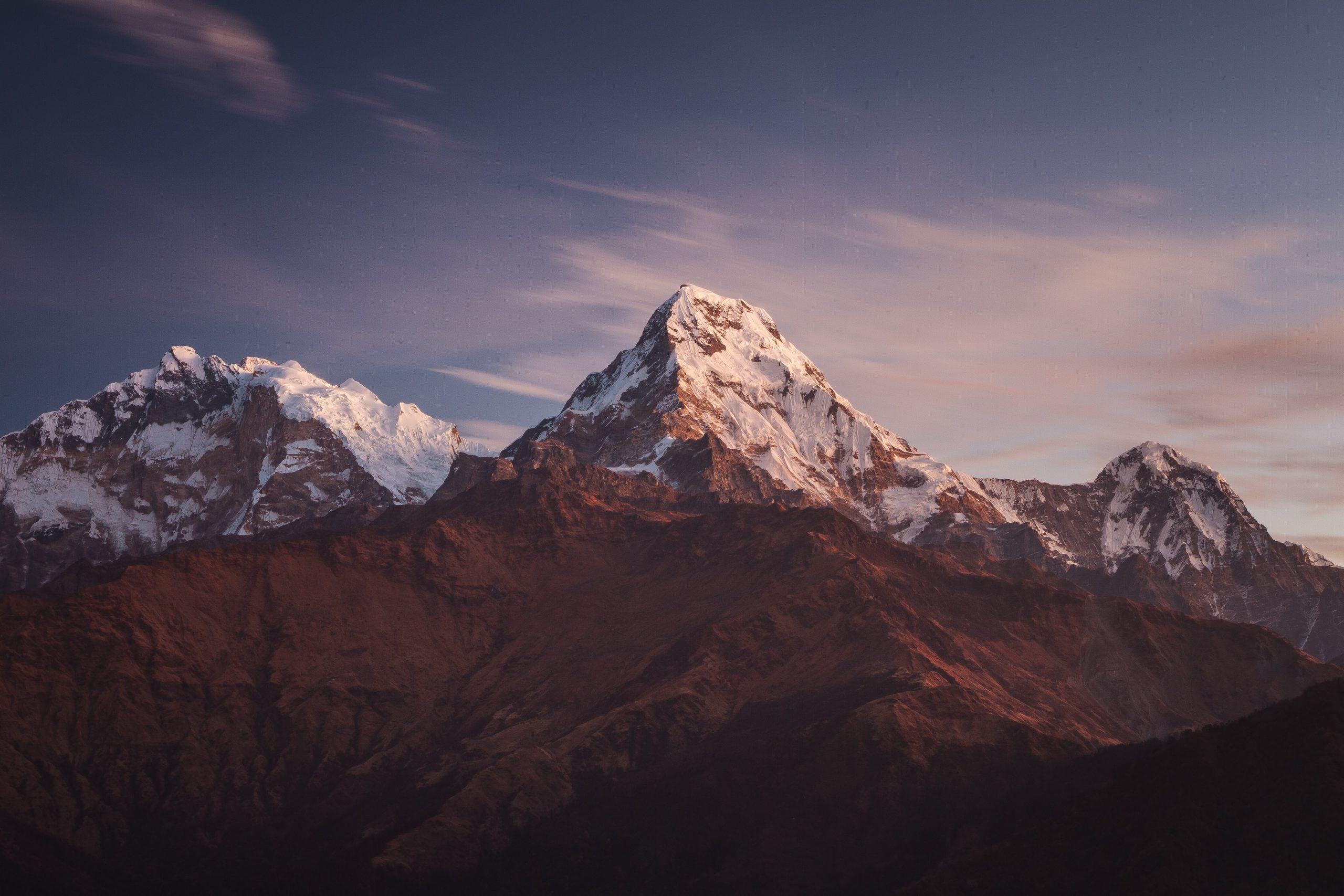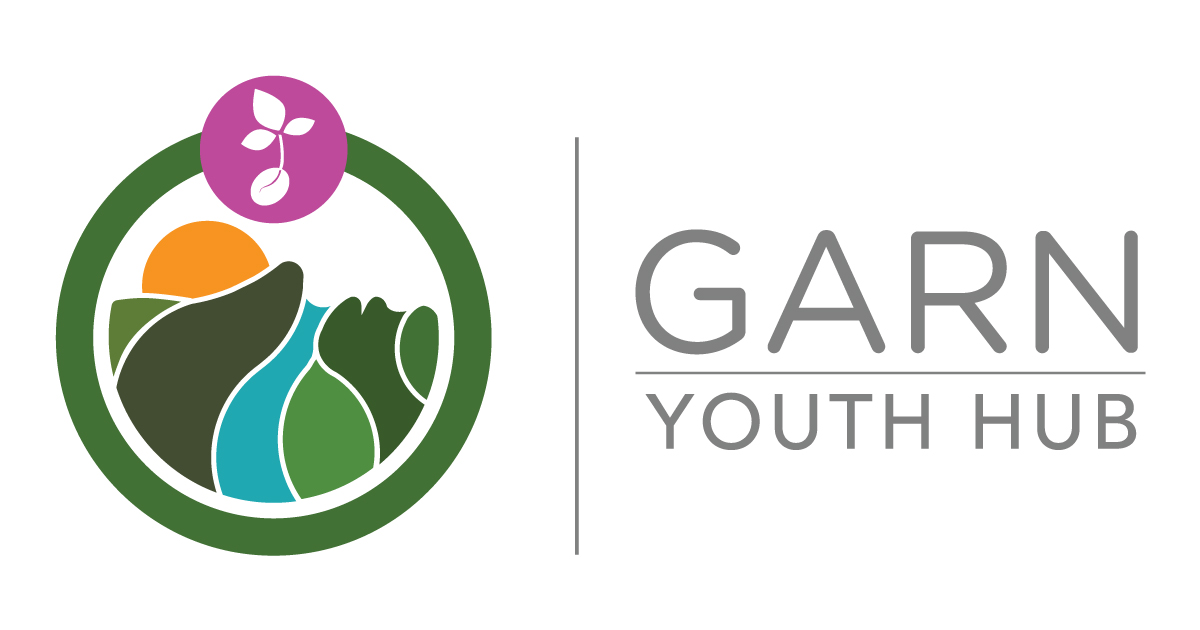
Below you will find all Youth Hub Publications
Rights of Nature Youth Declaration
This declaration was created by members of the GARN Youth Hub and Earth Law Center together with participants at the first IUCN Global Youth Summit 2021
(more languages below)
“Youth and the Rights of Nature Movement: shifting the paradigm for all future generations”
A Declaration led by Earth Law Center and the Global Alliance for the Rights of Nature Youth Hub, in collaboration with session attendees
We, the youth gathered at the first IUCN Global Youth Summit (April 5th-16th 2021), joined in collective learning and knowledge sharing, to unite on our common goals and demand change.
Youth hold unique and tenacious capacities to shift the current anthropocentric paradigm towards a future in which humans exist in harmony with the whole of the Earth community.
Youth are now born into a world that is overburdened with pollution and in which the Earth’s very life enabling cycles are endangered by growing crises such as climate change, biodiversity loss, and the global COVID pandemic.
We recognize that despite growing international norms and conventions, conservation targets have not been met and actions are insufficient to prevent further degradation and pollution.
We recognize that the well-being and survival of humankind depends upon maintaining, conserving, preserving, and restoring the health of the biosphere and its constituent ecological systems and components.
We recognize that humans are a part of Mother Earth, and that we must transform the current anthropocentric paradigm that assumes humans have ownership and dominion over the Earth.
We recognize the solidarity we share with other humans and social and environmental justice movements, and seek to recognize and support equally the rights of Nature, future generations, local communities, and Indigenous peoples, while bridging their divide.
We support the recognition of Rights of Nature within the IUCN and other institutions (e.g. United Nations Harmony with Nature Programme) and Conventions (e.g. the Post 2020 Framework on the Convention on Biological Diversity).
We, the youth attending this session, encourage action and implementation towards development of a future in which humans and Nature exist and thrive in harmony together.
We are Nature. Business as usual is no longer an option.
Supporting Authority
The international community has recognized on multiple occasions the necessity and efficiency of holistic governance recognizing the intrinsic value of Nature, in line with Earth Jurisprudence. This dynamic inscribes itself within the “Harmony with Nature” framework promoted by several UN General Assembly resolutions (e.g. A/RES/75/220); ‘Rights of Nature’ legal and policy changes and judicial decisions have emerged in over 20 countries.
At the IUCN World Conservation Congress (WCC) in 2012, Members of the Union passed Resolution 100: “Incorporation of the Rights of Nature as the organizational focal point in IUCN’s decision making.” Within this resolution, the IUCN called for the initiation of a process that would include the Rights of Nature in the IUCN as fundamental and key elements of plans, programmes and projects as well as in IUCN policy on rights, that would “contribute to a new philosophy of human well-being.”
Additionally, at the 2008 WCC, IUCN passed Resolution 4.099, recognizing that “a great number of the world’s languages lack an exact equivalent for the concept of ‘Nature’ that IUCN uses, and that, instead, the word or words they use include human beings, agrobiodiversity, and non-material realms, which are perceived as alive and often a more significant part of nature than their material counterparts….and that many of the concepts used instead of ‘nature’ are more holistic, and may be loosely translated in expressions such as ‘Mother’, ‘Mother Earth’, ‘Mother who makes all things possible’, ‘Community of all beings’, ‘Earth community’, ‘Source of all’, ‘Self-regenerating’, ‘Angel’, or ‘Spirit.’”
Similarly, the United Nations World Charter for Nature (1982) acknowledged that “mankind is a part of nature” and that “living in harmony with nature gives man the best opportunities” for living well. Noting that “every life form … warrant[s] respect regardless of its worth to man,” the charter calls upon a moral code of conduct to guide human action in a way that treats other organisms with respect. Additionally, the charter recognizes that in the decision-making process, man’s needs can only be met “by ensuring the proper functioning of natural systems.”
There is a growing awareness of the importance of language, its role in determining our ethical and moral considerations towards Mother Earth, and how our perceptions and values drive conservation and law.
Additionally, in 2021, the United Nations Environmental Programme (UNEP) released the first synthesis report titled: “Making Peace With Nature’” stating that “[t]ransforming social and economic systems means improving our relationship with nature, understanding its value and putting that value at the heart of our decision-making.’
We, the participants of the “Youth and the Rights of Nature Movement: shifting the paradigm for all future generations” sessions at the first IUCN Youth Global Summit:
Pledge to take further action in deepening and spreading the awareness of the fundamental and inalienable rights of Nature and of future generations; to fight for systemic change alongside our individual actions.
Pledge to create additional spaces that allow youth to collaborate as equal partners in the environmental movement, noting that more care is needed for access by underdeveloped countries, marginalized groups, BIPOC communities, and all disciplines including, science, law, economics and sociology.
Pledge to ask ourselves everyday “What have I done for Nature today.”
Pledge to work to restore our connection with Nature, such as through direct immersion, raising awareness in our communities through educational initiatives, and noticing (and transforming) the way we speak about and to Nature.
Pledge to take Rights of Nature beyond paper to action, to transform how we value Nature and learn and apply methods for being good stewards for Nature and future generations, including looking within our own work, organizations, and spaces to introduce Rights of Nature.
Pledge to ask our schools and universities to incorporate Rights of Nature into our curricula, and to create ways to intersect with all disciplines and studies, and instill this knowledge at a young age.
Pledge to be intersectional in our actions, language, and organizing; find and acknowledge the shared goals and support other liberation movements.
Pledge to learn more about the Indigenous lands and waters we occupy, the treaties that govern them, and how youth can support Indigenous rights and sovereignty.
Pledge to use and promote participatory science resources to empower society and help scientists generate data.
Pledge to be mindful in our consumption and daily activities, taking care to consider the impacts of our actions onto the Earth community and future generations, where our products come from, and the privileges we have.
We, the participants of the “Youth and the Rights of Nature Movement: shifting the paradigm for all future generations” sessions at the first IUCN Youth Global Summit:
URGE the IUCN Congress, Council, Member organizations, experts, commissions, and the Secretariat to implement their commitments to Rights of Nature as identified in Resolution 100, for example through:
-
Inspiring and promoting implementation and enforcement of Earth Jurisprudence and the Rights of Nature, and generating knowledge and tools (e.g. providing a platform for knowledge sharing) to enable a more comprehensive understanding of Nature/Mother Earth, and our relationship with and responsibilities to her;
-
Advocating for legal personhood for Mother Earth/Nature as a whole and in all of her forms (legal rights for rivers, the ocean, national parks etc.);
-
Interpreting human rights as Nature’s rights (i.e. human right to a healthy environment is also Nature’s right to a healthy environment);
-
Creating and/or promoting ways in which we understand Nature’s value and place that value at the heart of our decision-making (incorporating a non consumptive value of Nature and the impacts on future generations into cost-benefit analysis);
-
Ensuring decision-making regarding human engagement with the Earth is informed (and consented) by Indigenous legal and knowledge systems emanating from an understanding of relationships rather than resource use;
-
Phasing-out/ceasing promotion of false solutions that place Nature into the marketplace, fuel degradation, and do not address the root causes of our problems, such as REDD (e.g. carbon trading);
-
Internally reflecting on the IUCN’s own language and updating its statutes and policies to shift away from language equating ‘Nature’ to a resource and property with value derived solely from human benefit and utility (e.g. natural resource, ecosystem services) to language respecting and recognizing Nature as a living being/entity (e.g. the natural world, all life, and the Earth community);
-
Reviving and seeking passage of the 1982 World Charter for Nature;
-
Reimagining governance from an ecological/ecocentric perspective (e.g. eco-regions or bioregions);
-
Incorporating a holistic and lifestyle approach into decision-making and requiring proactive prevention and strict adherence to the precautionary principle and scientific knowledge and standards (e.g., In dubio pro Natura: when in doubt err on the side of Nature, a circular economy, etc.);
-
Adopting and sharing best practices for implementing and enforcing the Rights of Nature and rights of future generations, including the Universal Declaration on the Rights of Rivers and the Earth Law Framework for Marine Protected Areas;
-
Advocating for the recognition and the enforcement of Rights of Nature in all IUCN themes, operational regions, and programme work.
-
-
Creating more opportunities for youth to exchange knowledge and ideas globally. Ensuring inclusivity in events and projects related to conservation, so that diverse youth may join, have a space to engage and be empowered to have their voices heard and respected (e.g. additional virtual and free youth summits and International Rights of Nature Tribunals for youth);
-
Ensuring the representation of Youth and Nature herself in decision-making (e.g. council members, commissions, government bodies and institutions). In order for proper stakeholder engagement, Indigenous and local communities, youth and Nature herself need to have a voice and their interests and needs taken into account;
-
Creating an IUCN Commision (or working group within each Commission) for Youth;
-
Creating a strategy for the Rights of Nature to be mainstreamed with IUCN commissions through cross-cutting and joint initiatives, events, discussions, or projects;
-
Consciously designing school curricula to teach us of the interconnectedness of Nature and Earth-centered language and lifestyles, to bridge this gap of disconnectedness; to understand where our products come from, how we have access to clean water, etc;
-
Supporting the passage of Motion 056 – Creation of the Ombudsperson for Future Generations at the upcoming 2021 IUCN World Conservation Congress, and consider creating this position as a guardian for Nature;
-
It is imperative, in order to prevent the “crisis of life” now evident, to evolve our perceptions and values, including by transitioning to language and governance structures that represent the interconnectedness of ecological processes and that see humans and our systems as embedded within the Earth and natural systems. We kindly ask the IUCN Director General to put forward this declaration to the United Nations.

